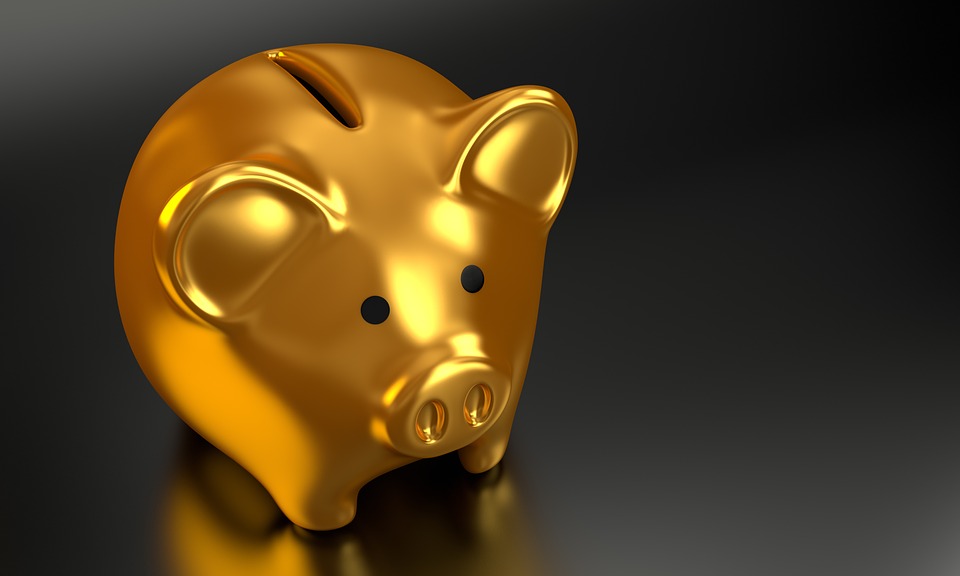 English for Banking and Finance
English for Banking and Finance
Banking and money vocabulary and phrases related to finance are useful language areas for English learners who are visiting and working in an English-speaking country for an extended period of time. When arriving in a new country to live and work, one of the first things we need to do is open a bank account. In order to do this, we need to know some money and banking vocabulary.
When banking and dealing with financial issues, we tend to use certain key phrases and words. Using English at the bank can be a daunting prospect for some EFL students due to the specific vocabulary needed. Knowing some basic banking and money vocabulary will help in many situations, not only when dealing with banking and financial issues.
Read on to find some of the common banking and money vocabulary. We explore special terms and words you will hear at the bank, finance-related vocabulary you might want to use and interesting money-related idioms and slang expressions.
Banking and money vocabulary
money, loose change, coins, pennies, notes, bank notes
cheque, bank book, paying in book
to deposit / making a deposit – paying into your bank account
to withdraw / making a withdrawal – taking money out of your bank account
to debit – to take money from your account (e.g. ‘your account has been debited’)
to credit – to add money to your account (e.g. ‘your account has been credited’)
balance – the amount of money in your account
to be in credit – to have a positive bank balance
to be overdrawn – to have a negative bank balance
credit (noun) – credit allows a person to buy goods/services before payment, based on trust that payment will be made in the future
debit card, credit card, store card – types of plastic cards used for making financial transactions
- Debit cards use money you already have in your account
- Credit cards use money on ‘credit’ – that you will have to pay back in the future

direct debit, standing order – money that is pre-arranged to be withdrawn from your account to pay a regular person/company
one-off payment – a single payment that won’t necessarily be repeated
ATM – automatic teller machine (slang: ‘hole in the wall’) – this is the machine you get money from. These can be found outside banks, on the street or often located inside a shopping centre
PIN (personal identification number) – you use a PIN when withdrawing money from an ATM and when paying with your credit/debit card
Contactless payment – a payment where you hold your debit and near the machine and it automatically pays without you having to enter a PIN
Warranty, insurance, purchase protection – when you have bought an item, this is insurance against it breaking
Debt, arrears – money you owe
liquidation – turning investments into cash (i.e. selling your house to get the money) – if a company goes into liquidation, it closes down
administration – if a company goes into administration it means it has been taken over by a court (the ‘administrator’) – going into administration means the company is in trouble and might have to close down
bureau de change – somewhere that exchanges foreign money
exchange rate – the rate at which you can exchange money (how much one currency is worth against the other)
currency – a system of money (e.g. the Euro is a currency)
commission – a charge paid, usually a percentage of the whole amount (a bureau de change will charge you commission to exchange your money – if you withdraw money at a foreign ATM, your credit card company will normally charge 3% of the total amount as commission)
loan – money that is borrowed (usually paid back with interest)
interest – extra money added onto the total amount. You usually have to pay interest on a loan, while you will also often receive interest on your savings
interest-free credit – a loan (credit) that does not have interest
to pay by installments – to pay back your loan in small amounts over a period of time
to pay in full – to pay back the whole loan (not in installments)
Credit card networks: Mastercard, Visa, American Express – these companies act as intermediaries, creating networks between financial companies
General types of debit card: Switch, Solo, Visa Electron, Maestro
Finance vocabulary associated with banking and saving
Banking
Bank account, checking account, deposit account, savings account
Insurance, travel insurance, life insurance
Mortgage, loan, debt
Tax, VAT (value added tax), gross income, net income
Bank manager, bank clerk, teller
Saving
Savings account, ISA, investment, bond
Pension, pension plan,
Interest rate, gross interest, net interest, AER, tax free
Fixed rate, variable rate
(Gross rate interest – before deduction of income tax)
(AER – annual equivalent rate – interest if paid and compounded on an annual basis)
Collocational phrases for banking
to pay in a cheque
to cash a cheque
to transfer money
(for a company) to go into liquidation
(for a company) to go into administration
to be in debt
to owe money (to someone)
to take out a loan
to insure something against fire/theft/accidental damage
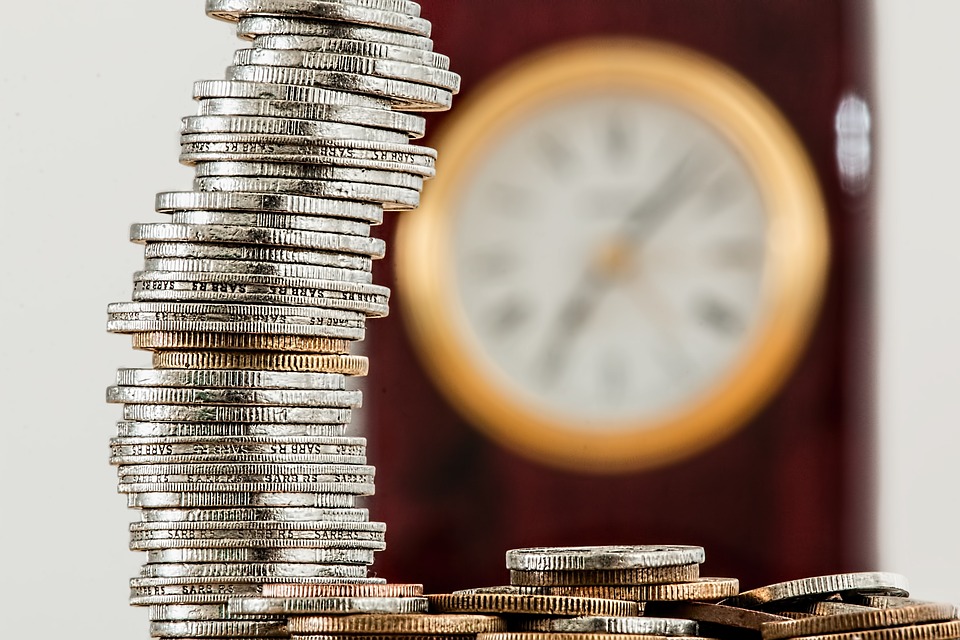
to pay into a savings account/pension
to borrow money from someone
to pay by installments
to lend money to someone
to invest in something/someone
to get a return on an investment
to change some money
to borrow money – to take money from someone that you will pay back later
to lend money – to give someone money that they will pay back later
Useful phrases – using English at the bank
| Phrases you may want to use at the bank | |
| I’d like to open a savings account | I’d like to open an ISA, please |
| I’d like to pay in a cheque | What is the interest rate on this account? |
| I’d like to cash this cheque | Could I change this money, please |
| My credit card has been stolen | Could I change £50 into Euros, please |
| I’ve lost my credit card | What is the exchange rate? |
| Phrases you may hear at the bank | |
| Would you like to apply for a credit card? | Could you fill out this form, please? |
| Would you like to open an ISA? | You will need to speak to the mortgage manager / financial advisor |
| Would you like your interest to be compounded? | Do you need insurance? |
| We can change that into Euros for you | Do you want to pay your balance off in full? |

Slang words for money in the UK
When talking about money, it is useful to know some slang words people use, so you can understand native speakers. No banking and money vocabulary guide could be complete without a look at slang expressions! Some slang words for money used in the UK include:
Cash, coin, notes, dough, loot, dosh, bread, wad, moolah, wonga, lolly, readies, smackers
‘a wad of cash’
a fiver (five pounds), a tenner (ten pounds), twenty quid (twenty pounds)
five nicker – five pounds
fifty notes – fifty pounds
a ton – a hundred pounds
a grand – a thousand pounds
a monkey – 500 pounds
a pony – 25 pounds
coppers – pennies (1p and 2p are coppers)
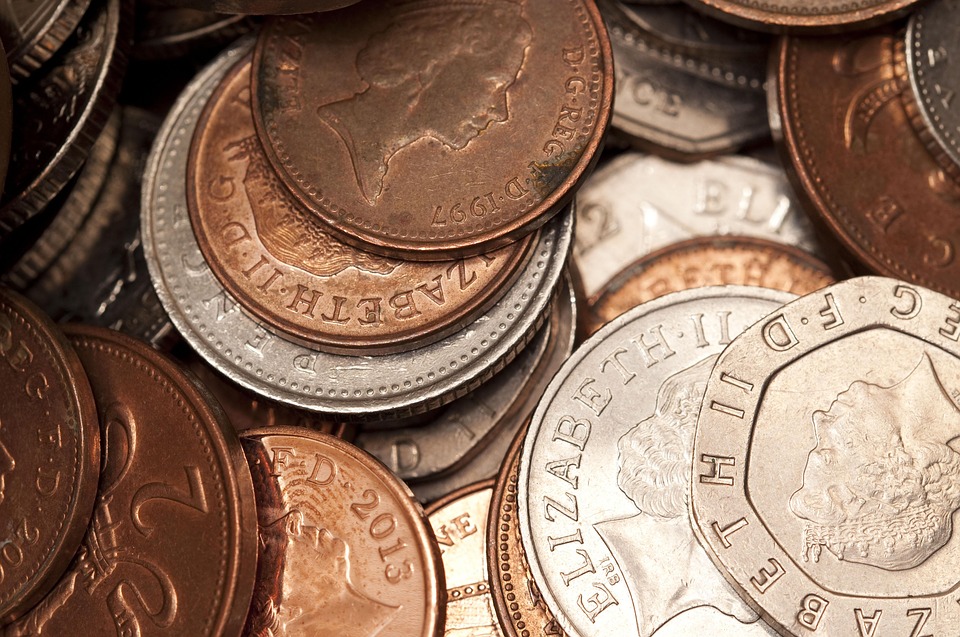
English idioms using money
There are lots of slang expressions and idiomatic phrases in English that use money vocabulary and words related to banking and finance. Here are some common money idioms using words related to finance:
‘to be in the black’ – you are in credit (a financially good situation)
‘to be in the red’ – you are overdrawn (a financially bad situation)
- In the black/red are expressions often used to talk about businesses
‘to bring home the bacon’ – to earn money
‘a cash cow’ – something that makes you a lot of money
‘a gravy train’ – a job that is easy and pays well (e.g. ‘to be on the BBC gravy train’ – to work for the BBC – implying that the company pays really well for little work)
‘to hit the jackpot’ – to do well (e.g. ‘you really hit the jackpot with that job’) – a jackpot is the biggest prize in a casino game
‘to make a killing’ – to make a lot of money from an investment or deal
‘to be on the money’ – to be correct about something (e.g. a person can be ‘right on the money’ if they make a correct prediction about an event)
‘to pay peanuts’ / ‘to be paid peanuts’- to pay poorly / to be paid poorly (if a job ‘pays peanuts’ it does not pay well)
‘to bet your bottom dollar’ – to be sure of something / to be certain that something is true (e.g. ‘I’d bet my bottom dollar they’ll go to France on holiday’)
‘a nest egg’ – your savings (your nest egg is usually money that is saved for the distant future)
‘to fork out’ / ‘to fork over’ – to pay a lot of money (e.g. ‘he forked out 500 quid on that!’)
‘to cost an arm and a leg‘ – to cost a lot of money
‘highway robbery’ – to cost a lot of money, over-priced (‘£50 for a bottle of wine? That’s highway robbery!) –
-
- Highway robbers were robbers who used to wait on the roads to rob rich people passing in their carriages from the Elizabethan era until the 19th century
- Highwaymen were famous for the phrases: ‘Stand and deliver!’ (e.g. ‘Stand and deliver your money/your purse!’) and ‘Your money or your life!’
- Hounslow Heath near London was infamous for its association with highway robberies, where robbers worked on the Bath and Exeter roads
- One of the most famous English highwaymen was Dick Turpin. He was executed in York in 1739
‘to cash in’ (on something) – to take advantage of a good opportunity, often financially
‘to chip in (on something)’ – to pay your share for something, to pay for part of a purchase along with other people who are also ‘chipping in’
‘to scrape together’ – to manage to find enough money – to get enough money together with difficulty (e.g. ‘I managed to scrape together £100 to pay for the expensive car repairs’)
‘to scratch around (for money)’ – if you are ‘scratching around for money’, you are poor or finding it difficult to earn enough money
‘to get by’ – to survive, to earn just enough to manage (e.g. ‘Do you make enough money to be comfortable?’ ‘I manage to get by.’)
‘to make ends meet’ – to get by, to survive on just enough money (‘He sometimes finds it hard to make ends meet on his low wage’)
‘as cheap as chips‘ – something that is very cheap
‘cheapskate’ – someone who is always trying to save money and never likes to spend any – a negative term (also a ‘stingy’ person)
‘to be broke’ – to have no money
‘to be hard up’ – to be poor, to have little money
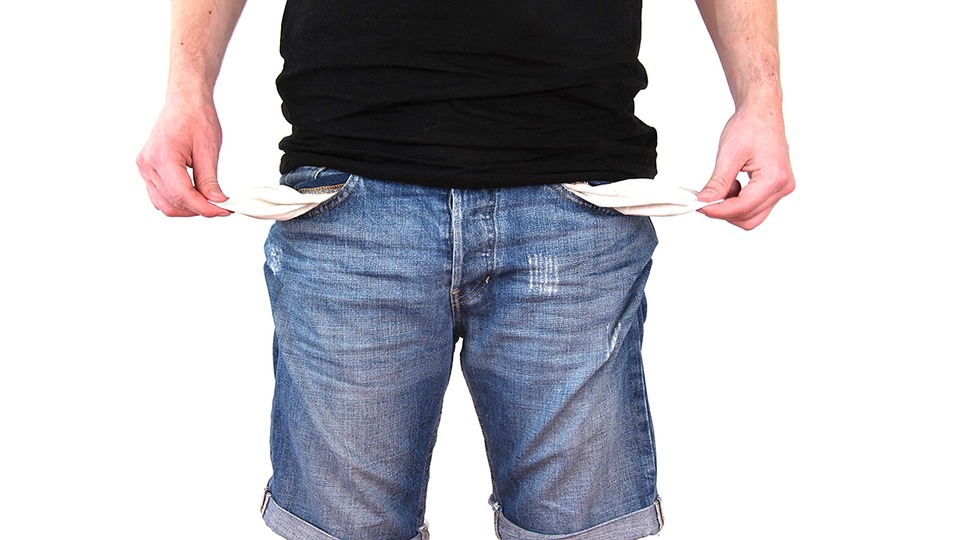
Slang words for money in the USA
a buck – a dollar (five bucks – 5 dollars)
a ten dollar bill – a ten dollar note
a dime – 10 cents
a nickel – 5 cents
a quarter – 25 cents
green – slang for money (American dollar notes are printed using green ink)
greenback – American dollar note
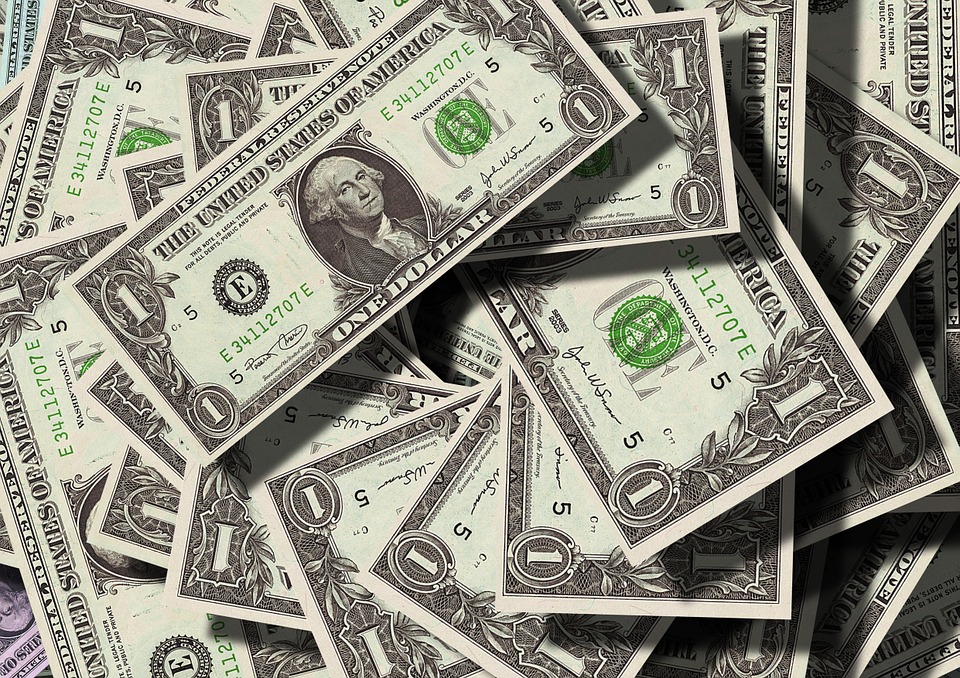
British Old Money
Before 1971, the UK banking system used old money – pre-decimal currency. Instead of pounds and pence being used in a decimal system, the country used pounds, shillings and pennies and it was all devised around the number twelve.
There were many different coins and monetary amounts with their own special names – this old system can seem very complicated to people today!
Under the old system of money in the UK, there were 12 pence in a shilling and 20 shillings (or 240 pence) in a pound. The penny was sub-divided into 4 farthings until the end of 1960, when they ceased to be legal tender. Old English money:
Farthing – a quarter of a penny (withdrawn from currency at the end of 1960)
Halfpenny – half a penny (ha’penny – pronounced ‘haypny’)
Penny – one old penny 1d
Twopence (tuppence) – two old pennies, 2d
Threepence / Threepenny bit – 3d (pronounced ‘thrupence’ ‘threpence’ or ‘thrupenny’ bit)
Sixpence – 6 old pennies, 6d (also known as a ‘tanner’)
Shilling – 12 old pennies, 12d (also known as a ‘bob’)
Florin – 2 shillings (24 old pence, also known as ‘a 2 bob bit’ ) – this was an early attempt at decimilisation as it was 1/10 of a pound
Crown – 5 shillings
Half a Crown – 2 shillings and 6 pence (this was called ‘2 and 6’)
Pound – 240 old pence (20 shillings – a pound coin was made of gold and called a ‘sovereign’) The slang for an old pound was ‘quid’.
Guinea – 1 pound and 1 shilling (worth 21 shillings – luxury goods were often priced in guineas. After the Great Recoinage of 1816, the guinea was replaced by the pound as the major unit of currency, and by the sovereign in coinage.)
When writing old money amounts, old pennies were written as ‘d’, while shillings were written as ‘s’. This derived from the Latin solidus and denarius, used in the Middle Ages. For example: ‘£2.3s.6d.’ (two pounds, three shillings and sixpence)
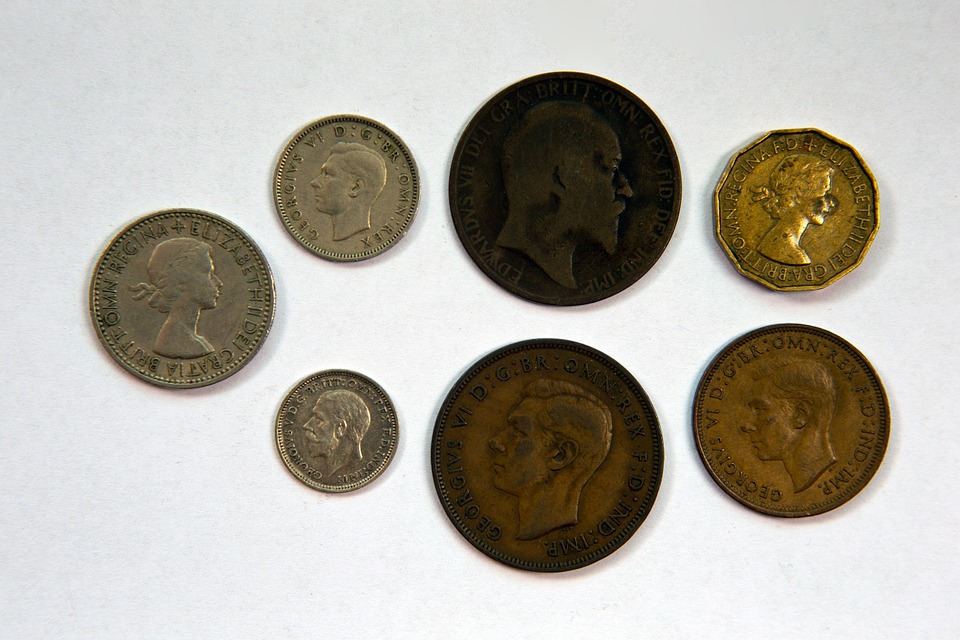
The history of money and words associated with banking and finance is fascinating for youngsters today and can be especially intriguing for English language learners.
Finding out more about English old money and financial terms from the past can add to the richness of your English money and banking vocabulary and making learning monetary words and phrases even more interesting.
Share your thoughts on banking and finance vocabulary
Do you find any of this banking and money vocabulary confusing?
Can you think of any more useful banking phrases or money vocabulary for EFL learners?
What do you think about the old UK monetary system? Older British readers ,do you remember using it? Younger readers, do you understand the old money or do you find it confusing?
Can you think of more money-related idioms?
Which words or phrases related to banking do you want to learn more about?
Let us know your thoughts in the comments.

please i need twente vocabularies used in banking and finance and its meaning and contents
Bank of England
Pounds